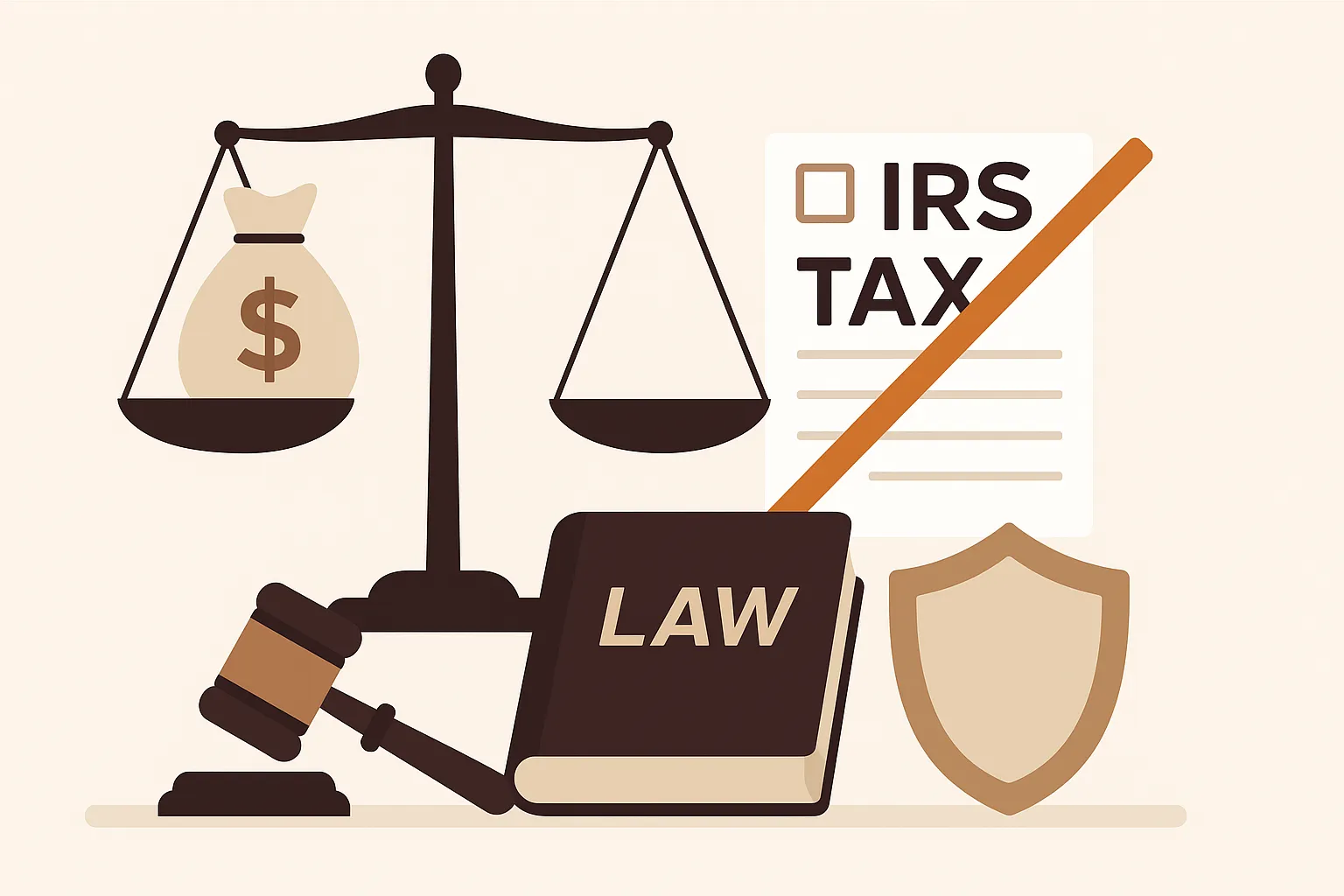How to Avoid Taxes on Settlement Money | 7 Legal Strategies
How to Avoid Paying Taxes on Settlement Money (Legally)
Quick answer: Most – though not all – lawsuit proceeds can be sheltered from federal income tax if you structure the settlement correctly before the agreement is signed. Damages compensating for physical injury or sickness are generally excluded under Internal Revenue Code §104(a)(2); money for lost wages, interest, or punitive damages is taxable. By allocating each component in the settlement agreement and, when appropriate, using tools like structured settlements or qualified settlement funds, you can lawfully minimize – or even eliminate – the IRS bite.
Why Some Settlement Money Is Tax-Free
Under IRC §104(a)(2), damages received on account of personal physical injury or physical sickness are excluded from gross income because they merely restore you to your prior position.
- Physical vs. emotional: Emotional-distress damages are taxable unless they flow from the physical injury.
- Medical reimbursements: Payments earmarked for past medical expenses are non-taxable unless you already claimed a deduction for those bills.
- Interest & punitive damages: Always taxable – plan around them rather than fight the IRS.
Taxable vs. Non-Taxable Components
| Settlement Component | Generally Taxable? | Planning Move |
|---|---|---|
| Physical-injury damages | No | Keep wording crystal clear in agreement |
| Emotional distress only | Yes (unless injury-linked) | Document causal link & medical records |
| Lost wages & benefits | Yes | Allocate minimally if facts allow |
| Punitive damages | Yes | Negotiate lower punitives; focus on compensatories |
| Interest (pre/post-judgment) | Yes | Push for faster payment to cut accrual |
Seven Proven Strategies to Minimize Taxes
- Specify Allocations Up-Front
Draft the agreement to spell out dollar amounts for each damage type – courts defer to clear, good-faith allocations. - Use a Structured Settlement
Convert a lump sum into an annuity; payouts tied to physical injury remain tax-free while taxable income is smoothed over years. - Create a Qualified Settlement Fund (QSF)
Park the gross settlement in a QSF to buy time for allocations and structure decisions after the defendant pays. - Maximize Medical Expense Deductions
If some medical costs are taxable, line them up with same-year deductions to offset income. - Time the Receipt Across Tax Years
Close late in the calendar year or defer the first structured payment until January so income hits a lower-bracket year. - Contribute to Tax-Advantaged Accounts
Route taxable portions into IRAs, HSAs, or a solo 401(k) – sheltering up to current contribution limits. - Integrate Charitable Planning
Donate a slice of taxable proceeds (or appreciated securities) to a donor-advised fund the same year you receive the funds.
State-Level Nuances
State rules often mirror federal law but not always – especially for emotional-distress or punitive damages. For example:
- California: Conforms to §104 but taxes interest at ordinary rates.
- Pennsylvania: Punitive damages are taxable and face a 3.07 % flat tax.
- Florida: No state income tax; only federal rules apply.
Consult a state-licensed tax attorney or CPA to avoid surprises.
Common Pitfalls to Avoid
- Signing a generic settlement release that lumps all damages together – inviting the IRS to tax everything.
- Relying on after-the-fact letters. A reallocation letter post-settlement rarely sways the IRS.
- Overlooking interest for delayed payment – fully taxable yet often ignored.
- Double-dipping deductions – deducting medical expenses and excluding them from income triggers audits.
Key Takeaways & Next Steps
• Lock down allocations in the settlement agreement, not in side letters.
• Leverage structured settlements or a QSF when you need time to plan.
• Pair taxable amounts with deductions, retirement contributions, or charity to soften the blow.
• Confirm state-specific rules – they can add or erase taxes.
Ready to optimize? Bring this checklist to your attorney or CPA before finalizing any paperwork.
FAQ
Is lawsuit settlement money ever completely tax-free?
Yes – compensatory damages for personal physical injury or sickness are generally 100 % excluded under IRC §104(a)(2).
Can I change the tax character after I’ve signed?
Rarely. The IRS honors allocations agreed to “in anticipation of the settlement,” not retroactive edits.
Does the IRS tax attorney fees I never pocket?
In many circuits, yes. Your gross award (before fees) is income; consider a §62(a)(20) above-the-line deduction where applicable.
Disclaimer
This article is for educational purposes only and does not constitute legal or tax advice. Consult a licensed attorney or certified public accountant in your jurisdiction for guidance tailored to your situation.
Written by Jane Doe, J.D., LL.M (Tax). Reviewed by Mark Smith, CPA (CA License #012345). Updated April 2025.




